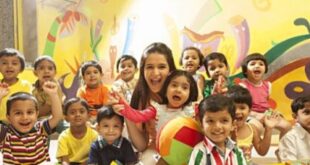 A child’s sense of happiness, success, and purpose is deeply molded by their environment: parents, teachers, peers, religious guides, and the larger community. In today’s age, digital platforms and social media have become equally powerful forces shaping these perceptions.
A child’s sense of happiness, success, and purpose is deeply molded by their environment: parents, teachers, peers, religious guides, and the larger community. In today’s age, digital platforms and social media have become equally powerful forces shaping these perceptions.
Unlike adults who find it challenging to break free from ingrained beliefs and habits, children remain open, flexible, and adaptable. When guided early to focus on what truly matters, they can grow into their authentic selves. By moving them away from mechanical, routine-driven goals and towards deeper values, we can nurture happier and more balanced individuals.
Rediscovering happiness as our natural state
Happiness is not something to be pursued but something we already possess at our core. By nature, humans are peaceful, content, and healthy. Yet, in the relentless chase for societal definitions of success, we often drift away from this state and create turbulence in our lives. That is because those pursuits require people to give up their authentic self to fit into the culture of the world, and people begin this non-stop, purposeful way of achieving things.
What overshadows happiness is not its absence, but the layers of stress, discontent, and dissatisfaction we accumulate. True joy comes not from seeking more, but from shedding these burdens. Much like a stretched rubber band, once the pressure is released, we naturally return to a state of ease and balance.
Fostering individuality in education
Standardization in education is often regarded as a necessary structure, one that equips individuals for employment, business, and survival. Yet within this framework, it is equally important for schools to preserve space for individuality. Education should not aim to press every child into the same mold, but to help them discover and embrace their unique identity. While they may be willing to work through a standard process to acquire and live life, they should not deviate from their authentic self. When standardized learning is balanced with opportunities for self-discovery and creative expression, children grow into confident individuals who can stay true to themselves while meeting the practical demands of life.
Teaching life as a core lesson
If schools could make just one transformative change, it would be to introduce a subject called “What is Life.” Children need to understand what life is, how to live it, how life works, and why they may feel unhappy, sad, depressed, not wealthy, or poor. All these nuances require a grander explanation, and once they begin to understand them, they can start the true pursuit of life and develop a personality strong enough to handle life as it comes.
Life rarely unfolds according to personal desires; it follows its own rhythm. Resistance to this truth often leads to frustration and unhappiness, while acceptance brings peace and balance. Yet this essential principle remains absent from traditional education. Despite centuries of cultural and religious teachings, society continues to struggle with unhappiness because life itself has never been taught as a subject.
Building futures rooted in balance and fulfillment
Parents and teachers carry a profound responsibility in shaping the next generation. Yet, with the best of intentions, many unintentionally push children into cycles of stress and discontent by valuing financial success and social approval over individuality and well-being.
While every parent wishes for their child to have a better life, the relentless chase for “better” often leads to greater unhappiness. The goal should not be to create high-performing individuals driven only by money, but to nurture value-driven human beings who understand themselves and the life they are living.
For this shift to happen, parents and educators must rethink their roles. Rather than molding children to fit narrow societal expectations, they need to create space for individuality and introduce life lessons that cultivate wisdom, resilience, and self-understanding. When children grow with this foundation, they step into adulthood not only capable but also truly content.
V. K. Vinod Sreekumar, Founder & CEO, PracticeSuite
 Newspatrolling.com News cum Content Syndication Portal Online
Newspatrolling.com News cum Content Syndication Portal Online






